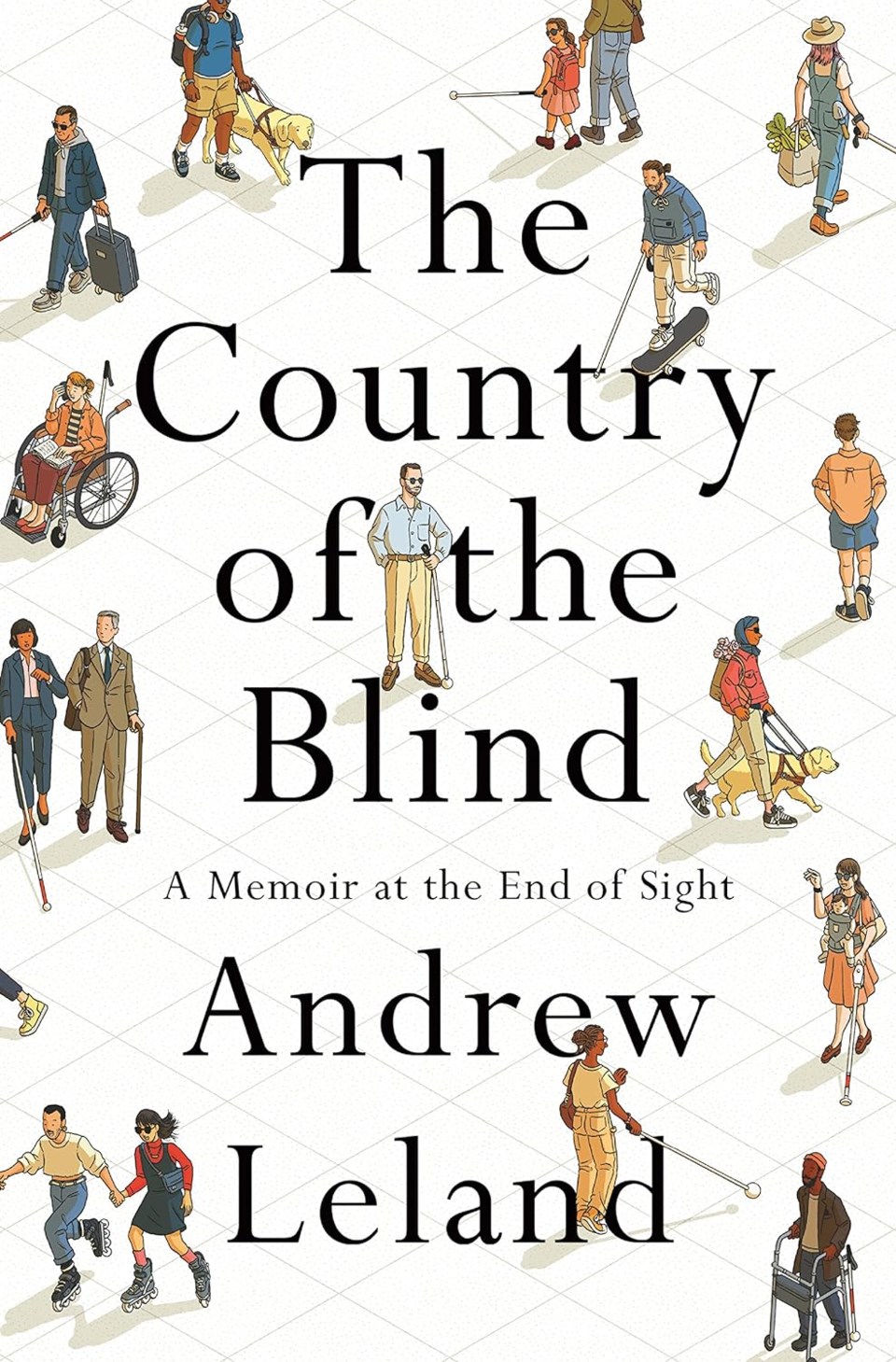When I had COVID last month my eyes swelled up. Not surprising as it is a disease of inflammation. I worried though, about how it would affect my glaucoma, an eye disease which is the second leading cause of blindness worldwide.
Glaucoma is a genetic disease and when my mother died last year, she was totally blind. Her last 20 years were marked by progressive darkening of everything around her. My mother lived alone and wanted very little help, insisting on managing her life inside her condo by herself. This was a source of pride for her. Being with her was like looking into my future, a future which was frightening and for the most part inevitable.
As often happens with books, time provided me with this fascinating and well researched book. Writer and editor Andrew Leland’s genetic disease called retinitis pigmentosa has not robbed him of total sight yet, but he was compelled to explore his future of total blindness.
He started by attending conventions for the blind, totally blind (no pun intended) to the politics of activists involved. Although he felt like a fake because he was not completely blind yet, what he experienced brought him closer to the lived experiences of life without sight.
What he found inside this community was so much strength and determination but also so much conflict. Some factions believe that blindness should not affect a person’s ability to do anything – independence was paramount. Others believe that accommodation and funding were absolutely necessary. Some railed against the chirping at stop lights, and others believed that the white cane was the only aid needed – not even seeing-eye dogs were necessary.
Leland, a reader all his life, has so many literary examples of blindness and the writing world. Homer, James Joyce and Borges, all were blind. Borges wrote 40 books after he was no longer able to see. I also had no idea that Audre Lord, one of our best-selling authors was legally blind, yet she never described herself as disabled. Shakespeare’s King Lear to the blind Duke of Gloucester, “No eyes in your head, yet you see how this world goes.” Gloucester to Lear, “I see it feelingly.”
You certainly don’t have to have loss of vision to be amazed by the richness of this book. It intersects classism, sexism, racism, ableism, but not just the isms of it all. It illuminates our shared humanity and history on every page.
